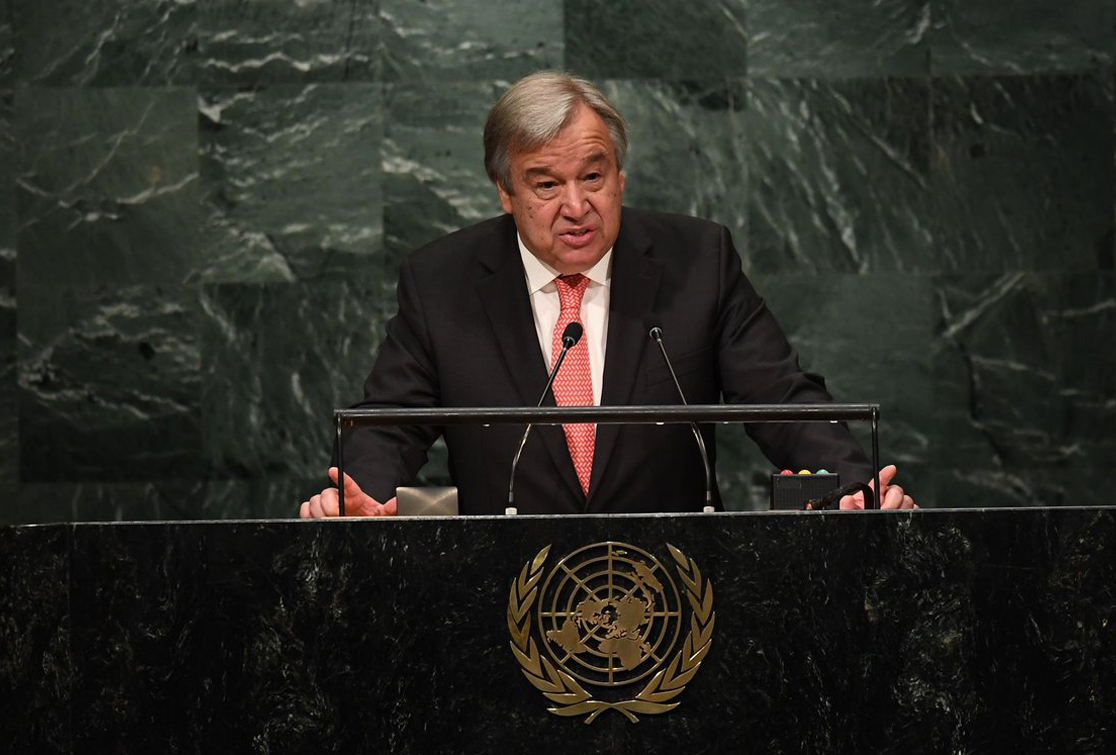
His Excellency the Secretary General of the United Nations, Antonio Guterres,
We, Syrian organizations working in the areas of human rights violations, documentation, accountability, and transitional justice, signed this memorandum in regards to the United Nations General Assembly Resolution A/71/ L.48 on the establishment of the International, Impartial and Independent Mechanism (IIIM) to Assist in the Investigation and Prosecution of Those Responsible for the Most Serious Crimes under International Law Committed in the Syrian Arab Republic since March 2011. We would like to thank the United Nations General Assembly for the initiative aimed to ensure reliable and comprehensive accountability for violations of international humanitarian law and violations of human rights abuses committed in Syria. However, we also would like to express our disappointment that we were not involved in drafting the terms of reference for the IIIM as it was assigned to the United Nations Office of High Commissioner for Human Rights, despite the fact we have continuously engaged with various UN entities, often contributing directly to reports and statements related to the human rights situation in Syria. Below are recommendations from the undersigned Syrian organizations that we hope you will take into account during the drafting and subsequent implementation of the IIIM’s terms of reference:
1. Jurisdiction and the process of preparing files: The General Assembly resolution confers upon the IIIM powers of prosecuting perpetrators of violations without also conferring or describing clear jurisdiction for the prosecutions.
While the resolution refers to prosecution in national, regional or international courts, there are currently no international courts that have jurisdiction over war crimes and crimes against humanity committed in Syria. Thus, the ability of the IIIM to pursue prosecutions is limited to the jurisdiction of European and North American courts, which often only extends to low level perpetrators found among asylum seekers located in those countries. Thus, the terms of reference should explain a) whether and how the IIIM will seek to open up new jurisdictions for prosecutions and b) how it plans to engage with jurisdictions currently available when the prosecutorial offices of those countries typically lead the investigation and trials process.
Similarly, the resolution calls for the IIIM to prepare files in order to facilitate and expedite fair and independent criminal proceedings in national, regional and international courts that have or may in the future have jurisdiction over these crimes. Without clear jurisdiction, the preparation of criminal files will happen in a vacuum and will not have any direct use in the near term. Therefore, the United Nations should prioritize clarification of the process for preparing such files in regards to whether the IIIM will prioritize file preparation only for those cases where jurisdiction is currently available or, if it is preparing cases regardless of jurisdiction, how the IIIM will prioritize types of violations as well the anticipated outcomes of the case files in the near term. The relationship between file preparation and the availability of jurisdictions is vital to the efficacy of the IIIM.
2. Partnership with Syrian civil society: The General Assembly resolution calls on civil society to cooperate fully with the IIIM and provide the mechanism with any information and documentation the groups may possess. As written, the IIIM will adopt the United Nations’ approach of viewing Syrian civil society organizations merely as sources of information and not as partners in achieving justice; this “one-way” relationship has been used by the United Nations Commission of Inquiry of the Human Rights Council and was not perceived favorably by Syrian civil society groups.
The IIIM’s terms of references should be clear about the relationship between the IIIM and Syrian civil society. For example, Syrian civil society involvement in the process of drafting the terms of references of the IIIM is essential in establishing a relationship of trust between the parties. We believe that the inclusion of representatives of Syrian civil society, particularly those human rights organizations that have proven their credibility in documenting violations, in an advisory role (such as an advisory board) will strengthen trust between the parties and increase the chances of cooperation. It is also necessary to develop a clear policy on sharing data and exchanging information to ensure that the mechanism maintains the highest level of confidentiality, while also allowing Syrian civil society to access information under certain circumstances. The IIIM can also be a vital tool in communicating to Syrian civil society and Syrian society in general the progress of file preparation and steps towards accountability. Involving Syrians in these processes to the extent possible without violating high standards of confidentiality, due process, and victim protection increases local buy in and ensures that accountability is meaningful to the community it seeks to serve.


